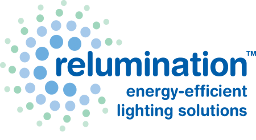Owning or managing commercial real estate is a full-time job. There are a lot of different competing factors fighting for your time, effort, and money, especially if your industry has stiff competition. The best way to focus on your core business and services is to use third-party experts whenever possible. Having a professional inspector check your building for zoning violations and burgeoning failures is a perfect example. The inspector should check for ADA compliance, not just local regulations, and focus on these three key areas if the inspector doesn’t bring them up:
1. Are your entry and exit points up to par?
If potential customers can’t easily get into your place of business, you’re going to lose business. Even worse, someone may make a claim or suit against your business for discrimination and failure to comply with ADA building compliance. So ask about the sidewalk leading up to your front doors, any need for a ramp, and if the doors are accessible to all potential traffic. Depending on the building type and your area, you may also be responsible for the parking lot, the exits, and maintenance of universally accessible emergencies exits, even in shared areas between properties.
2. Do you have sufficiently wide walkways and restrooms?
Your hallways, spaces between permanent structures (like walls, bars, and tables), and doorways need to be sufficiently wide for patrons in wheelchairs. Your restrooms also need to be universally accessible and, if possible, have above the bare minimum of space. Making your building better than minimally compliant will be noticed by visitors with disabilities, and that’s good for business.
3. Is your electrical wiring right for the lights you have?
ADA compliance includes having sufficient lighting and signage for visitors with visual impairments. If you or your property manager were previously aware of this, you may have already updated the fixtures. But double-check that old wiring can handle more powerful lighting and greater numbers of electronic devices so that your building stays safe.
Good lighting makes it easier to navigate through your building. It makes it more inviting and reduces the risk of injuries. Contact us to discuss the lighting you need to make your store more accessible.
